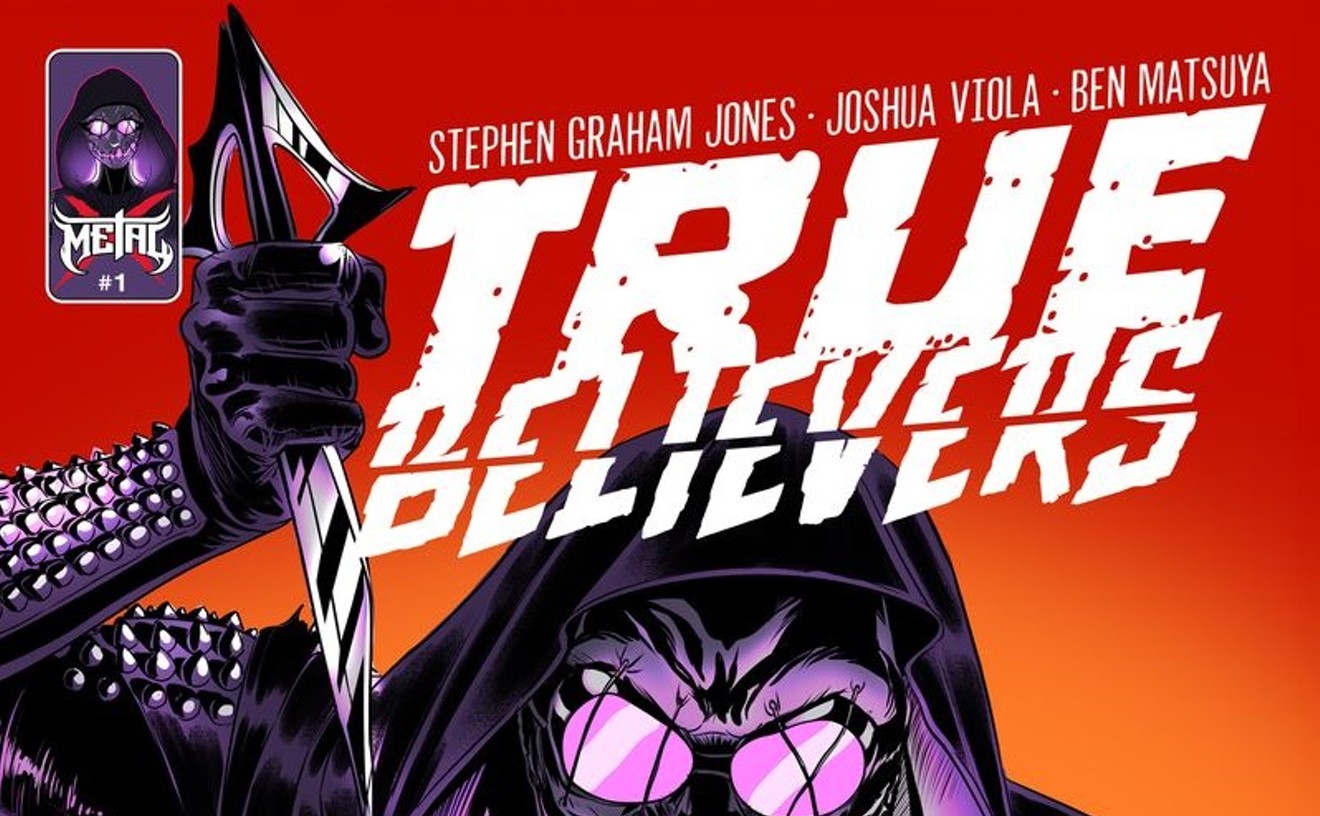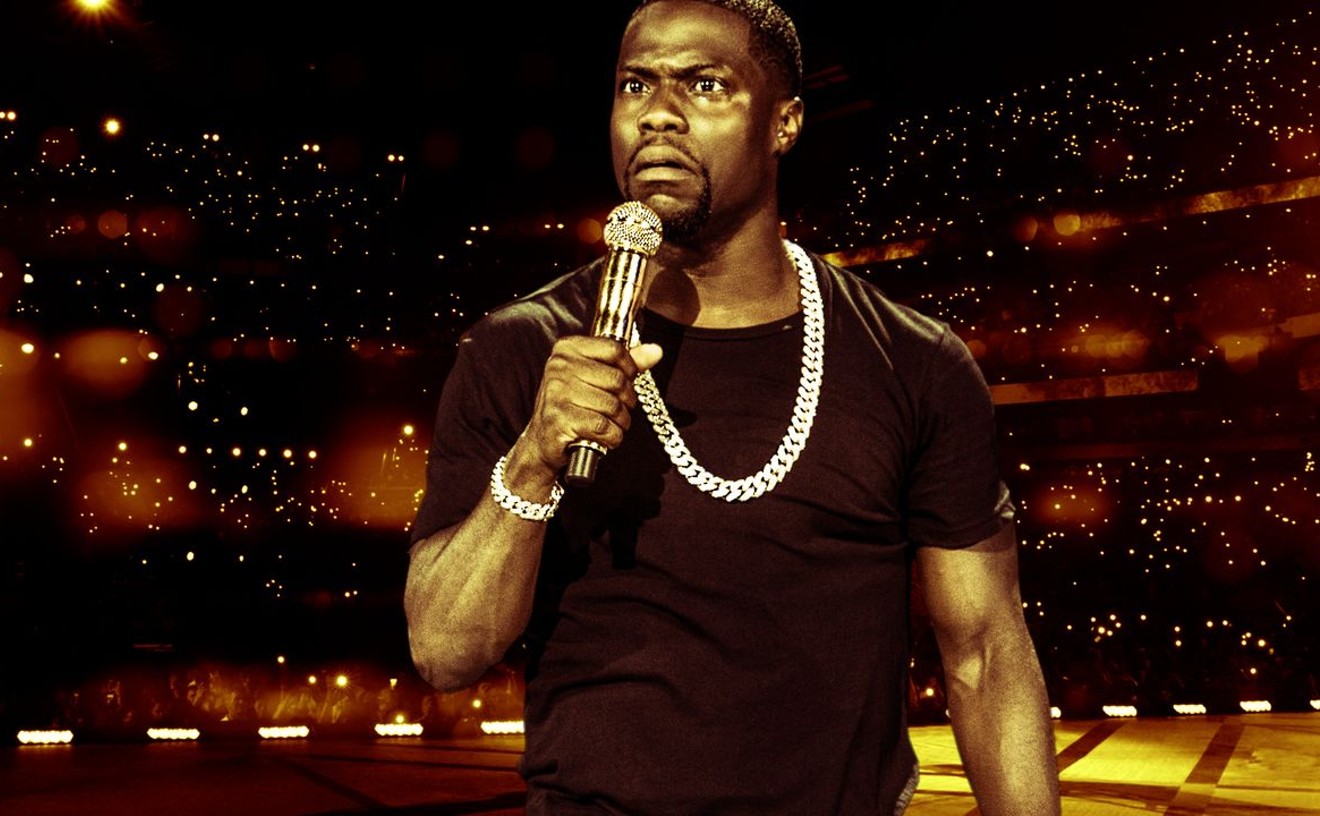In advance of this multi-faceted exhibition and performance, Place spoke with Westword about the idea of confession and what it means to experience guilt -- even when there is no reason or cause for that guilt.
See also: - Poet Serena Chopra on contemporary loneliness and her first full-length book - Artist Maya Gurantz on textual pornography and her installation The Whore's Dialogue - BMoCA seeks reminders of your once-broken heart for the Museum of Broken Relationships
Westword: The Lawyer Is Present is an interactive exhibition. Can you explain a little more about it?First of all, this piece is a little bit of a play off of Marina Abramović's The Artist Is Present. Obviously, in her piece the focal point is the artist sitting across the table from the audience member and communicating silently. In one way, it kind of reverts the gaze in art; instead of the audience member looking at the art object, in some ways, it's looking back. Also, it's about a kind of communication, or at least a sense of silent communication between art object/artist and the audience.
The interesting thing that she's doing is she is collapsing that distinction -- which she does in a lot of her work -- between the object and the artist. The artist is the object.
In The Lawyer Is Present, what's happening is that the artist/art object doesn't actually exist at all. There is no communication between me and the work and the audience -- what I've done, or what I'm doing, is creating a platform for the audience to look at itself. So whatever they say to me either ends up going away -- it doesn't exist anymore -- if they pay to keep it confidential, or it will be transcribed and I will perform it publicly, with certain things -- specific identifying information, names and things like that -- redacted.
Instead of it being about the gaze, it's about the voice. But my voice doesn't come into play -- it's only the audience member's voice. It's them saying indirectly what they may not want to say directly, publicly.
My response to the Abramović piece was, but that's very romantic. It's still this idea that the artist is a special creature. I think this (The Artist Is Present ) is saying, you know what? This is just you. My argument would be, all art is just you. You bring something to it, or you don't. You're stuck with yourself and all of your secrets.
So in this way, when the audience chooses to share information with you inside the museum, is there a confessional of some kind? What does that look like? Are they hidden away?
I'll be in a mirrored enclosure -- people on the outside will see themselves. The enclosure will be at a height that if they wanted to look over, they could. But they would have to make a decision to do that. A lot of my work has a (possibility of) temptation -- but there is always a choice to make. Everything you choose to do, in one way or another, implicates you. In one way or another, you choose to collaborate in your own guilt, so to speak.
If you want to see who's confessing, you have to make the decision to look over the top. You can't do it easily, but at the same time, no one is prohibiting you from doing it. If you want to publicly confess something, you certainly can. Again, you can make a decision -- it's sort of the responsibility of the individual audience member. By the same token, in much of what I'm doing, my idea is to, in some ways, serve as a conduit.
The old idea of a confession was, it was either private and you would confess to a priest or lawyer or someone like that, and it would go away. It was completely confidential. Or it was public -- you would stand at the crossroads, like Crime and Punishment. You'd stand at the crossroads and you confess your sins to the world. That's a way of atoning.
One of the things that lawyers can do is confess for people; we're mouthpieces. I'm curious if participating audience members will take the chance to sensationalize a confession and tell you something really juicy because there is no consequence. Versus a confession you may get as a lawyer, when you're listening to a client or are in a court situation.In almost everything I do, what I'm interested in is facilitating that point where people discover something about themselves. It would be interesting to find out that you were the sort of person that would sensationalize, versus downplaying. Why? What is that about?
Especially with the potential for you to perform that confession later on.
And how much of that is about trying to make the lawyer uncomfortable? It becomes an interesting temptation -- that you provide these opportunities. It's like leaving money out people to make an ethical decision.
I'm interested in the idea of being a voyeur versus being a stalker. When we talk about something like Facebook, people tend to tell or confess a lot of personal information to veritable strangers.
Right. But Facebook is fascinating because Facebook is also performance, right? They are sort of showing the way they would want people to see them -- like "I'm caring."
Sometimes, it's a little ridiculous -- it's like, "I love my children," "I have a cute dog." It's things like that in another time, pre-Facebook, I would never call you up on the phone and say, "Hey, guess what? I love my children." (Or) "It's a Saturday, and I just cannot tell you what a good breakfast I just made."
I think that in The Lawyer Is Present, it's the same opportunity, it's just in a gallery. Only it's is a little circumscribed in the sense that it's supposed to be confession. But what does that mean? What is a confession, especially if you know it's going to be public?
When I think of confession in a public place, I think of it being mandatory part of Catholic school -- be nervous to lie out of a desire to not tell the priest my real sins.
Or what if you hadn't done anything, particularly? That's my favorite moral problem -- do I actually have to confess to something I didn't do, because otherwise, I seem more guilty than I am? You appear more guilty. It is a funny thing.
One of the things that's intersecting to me from a legal, psychoanalytic perspective is: People will confess, all the time. You hear it over and over again, in television and movies, throughout your entire life: Don't talk to the police. But a lot of people do. There is a compulsion to confess. So, why is that? How do you activate that?
You're right -- Facebook is a kind of public confessional, but it's almost a confessional for the good.
With Facebook, you can be immediately affirmed and aligned with.
It is interesting that Facebook has decided that it should only have a "like" button. There's no way to say, what you did was really crummy and you should feel bad.
Or you see someone post on Facebook that their father dies and it gets 31 "likes." Obviously, it doesn't mean that they liked the fact that a person's father died, but it's a way they we register that we've paid attention to this -- we've approved this message. It shows that we're good people.
In reality, "like" is such a mediocre expression.
It's the social media equivalent of describing something as "interesting." (It's) the non-signifier signifier. Besides the active confessional portion of the exhibition, can you talk about the companion pieces that will be a part of The Lawyer Is Present?
There will be some wall pieces -- decorative versions of the Miranda warnings in English and Spanish. And my anticipation is that people will ignore them, as people do.
There will be some audio pieces that are called "confessions." One piece will be a series of me reading the responses of people arrested for sex crimes through their interrogations, but I'm only reading the answers, not the questions. It's everything from someone saying, yes, I touched her here, I did this, to someone just saying yes, yes, yes and agreeing with everything the police have said.
Then, the other track -- and you don't know which track you'll get necessarily -- is a series of rape jokes. Me just reading rape jokes. The idea with those pieces is that the people listening to them will be facing out to the gallery. So, in some ways, whatever their expressions are become not only their confession to the other people walking into the gallery, but also become the visual art in the room. Their faces become the portraits in the room.
These are reactions will be to two very different things, but with a similar, I don't know, topic or subject? Similar because they are both about a kind of confessional moment. One is the confession that's real in a sense, and a submission to authority. And the other, with the jokes, (they) are a confession to a kind of imaginary. It's a way of people taking something that is so raw and turning it into this other thing -- something completely opposite.
If you were sitting there listening to one track, you wouldn't know what the person next to you was listening to. They may be laughing while you're listening to someone confess to something really unpleasant. The trick with the jokes was, I had to find ones that were actually funny. I spent a lot of time wading through a lot of jokes that were not very funny, I have to say.
There were some sculptural pieces that are partial objects -- they are little body parts, like an ear, a mouth, that kind of thing. They aren't things I made, they are just references. The Freudian notion of the fetish -- being just a part of a body that we attach all of this significance to. In the piece as a whole, you've got the voice, the ear and listening, that sort of thing. So there's a way in which the crimes that are being confessed to also engage with parts of people, instead of whole people. So does art. So does confession.
The Lawyer Is Present opens Friday, April 12, at the Boulder Museum of Contemporary Art, 1750 13th Street in Boulder. Confessional hours: noon to 3 p.m. Friday, April 12; 9 a.m. to noon Saturday, April 13; and noon to 3 p.m. Sunday, April 14. Place will do a performance of the collected confessions at 6:30 p.m. on Sunday, April 14, which will be followed by a closing reception at 7:30 p.m. For more information, visit the BMoCa's website.
Follow @WestwordCulture











